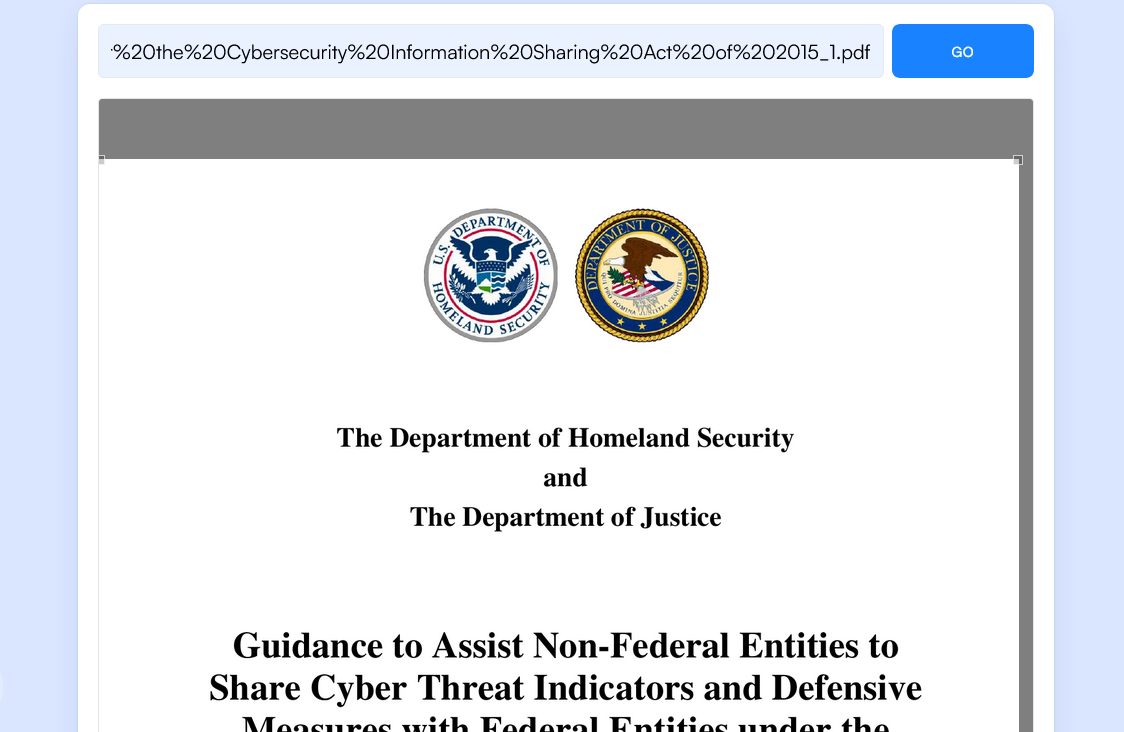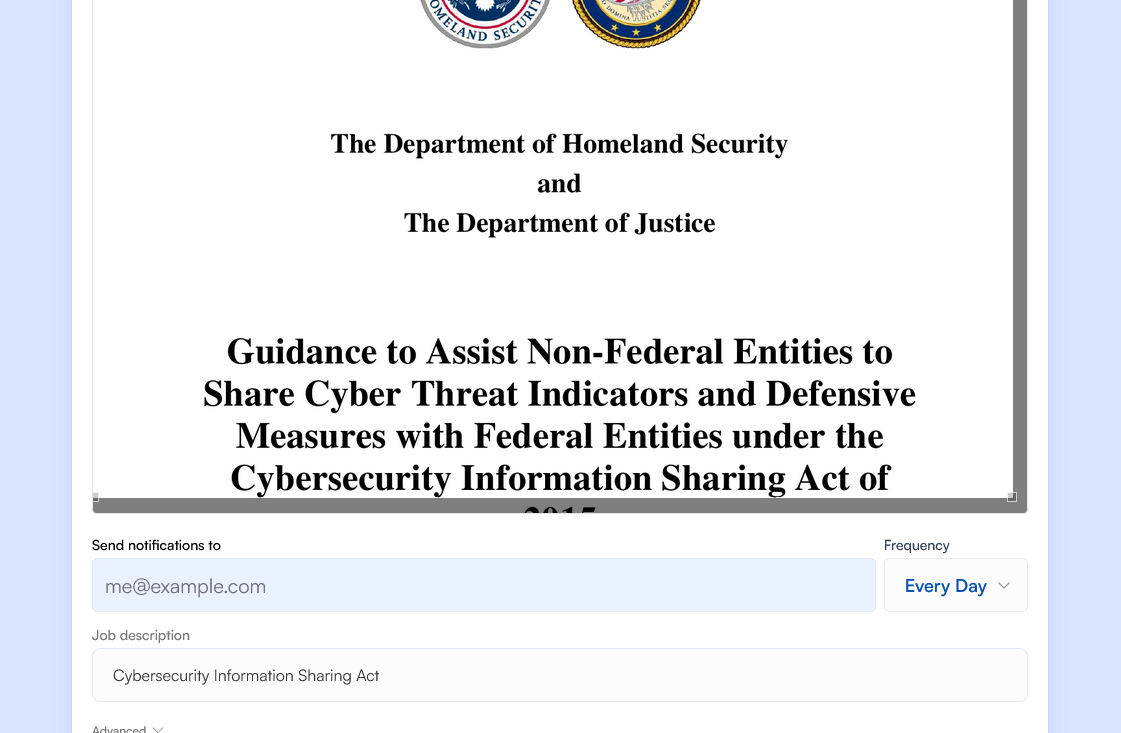What Is Financial Compliance? - Visualping
By Emily Fenton
Updated February 9, 2022

Financial Compliance: Mitigating Common Risks
Compliance regulations are a critical part of any business, and they are constantly evolving to protect businesses and consumers alike.
There are many types of compliance, and often they intersect across industries. For example, hospitals have to comply with HIPAA and other financial ordinances because they handle the personal health information of patients while processing payments.
Here are some recommendations for understanding compliance risks and staying current on compliance regulations that apply to your industry, especially when it comes to financing.
Want to keep up with the latest regulatory changes and compliance risks? Visualping is a simple but powerful website change detection tool that’s useful for monitoring relevant industry sites for new announcements, industry developments, and regulatory changes.
What Is Financial Compliance?
To start with, “financial compliance” itself is an umbrella term for any internal and external regulatory systems and procedures that businesses are (often legally) required to follow. If your business does not remain in adherence to financial regulations and laws, you may face serious legal consequences, including sizable fines.
Understanding Compliance Risk
Given that issues with financial compliance can negatively impact your company through incurring penalties and legal fees (not to mention the damage to your company’s reputation), it’s important to not only understand but maintain compliance with regulatory requirements.
Why Financial Compliance Risk Can Be a Serious Threat
There are truly an innumerable number of reasons why risks to financial services compliance can manifest as a serious threat to the integrity of your company. Some of the most significant reasons are outlined below.
Legal Issues and Liability Concerns
If your company fails to comply with compliance laws and regulations or merely demonstrates gross negligence, you will likely experience legal troubles. Staying in compliance with local and industry regulations helps you avoid legal issues that may include:
- Lawsuits that could result in the termination of your business
- Work bottlenecks that significantly impact your business profitability
- Tremendous legal fees
There are various legal issues you could face by being out of compliance, and their ramifications can cause total financial ruin.
Data Security
Many industries, especially those that comprise the financial sector, have regulatory bodies that are dedicated to dictating compliance requirements in order to protect the personal and financial data of customers.
The financial industry is especially rapidly transforming into a digital space where services are offered in the cloud, and with the evolution toward digital means comes the heightened risk of hacking and other digital attacks.
Reputational Risks
The details surrounding high-profile lawsuits and data breaches are public information, and the worse the breach or lawsuit, the more publicity the issue receives. In order to protect the reputation of your business or brand among your consumers, you must avoid compliance risk.
The 4 Most Common Types of Data & Financial Compliance Risks
Below are some of the most common compliance risks businesses face, particularly those that handle the personal or financial information of consumers on a regular basis.
Disclosure of Personal Health Information
The US Department of Health and Human Services (DHHS) requires the protection of sensitive medical information. If your company has access to any customer’s or patient's personal medical information, you are obligated to be in compliance with HIPAA regulations.
Some common causes of HIPAA breaches include:
- Losing or misplacing physical patient paperwork documents
- Lost or stolen electronic devices containing sensitive information
- Unauthorized breaches of access to patient information by either renegade employees or hackers
The DHHS regularly adds to and changes the terms of HIPAA compliance to conform with changes in society and technology. HIPAA compliance laws around digital devices didn’t exist in the same way they did even 20 years ago.
With that being said, if you are a company with access to information that falls under HIPAA privacy laws, you should stay updated on any changes to HIPAA compliance.
Credit and Debit Card Data Breaches
Credit or debit card data breaches happen when personal card data is accessed by an unauthorized individual. Some of the data that is put at risk includes the name and address of the card owner, as well as the card number itself, its expiration date, and its verification code.
Hackers are constantly trying to hack financial information in order to commit theft and fraud. Credit and debit card data breaches are taken quite seriously, and no one is immune. Even Equifax, one of the largest credit bureaus in the United States, suffered a data breach in 2017. that exposed the sensitive financial information of over 147 million of its consumers.
Some of the data exposed in the breach included:
- Names
- Addresses
- Social Security numbers
- Dates of birth
- Credit card numbers
All of that information could be used by hackers to commit either identity fraud or other financial crimes. Therefore, the Payment Card Industry (PCI) Security Standards Council (SSC) has specified PCI data security standards that companies should adhere to. By following these standards, companies minimize the risk of data breaches.
Data Privacy Law Violations
Data privacy laws are another somewhat-new evolution within the compliance space brought about due to technological advancements.
Advertisers and businesses of all industries use consumer data to drive profits. The easier it is to target niche audiences based on their interests according to data, the easier it is for companies to sell services or products, and the easier it is to enhance profitability.
A few years ago, the EU introduced the General Data Protection Regulation (GDPR), one of the toughest privacy laws in the world. It forces lawfulness, transparency, and fairness by protecting the personal data of consumers, and non-compliance with its standards comes with hefty ramifications.
Damage to Critical IT Systems from Natural or Man-Made Disasters
Natural disasters, and sometimes man-made ones, too, such as facility fires, are unavoidable, but when and however disasters occur, IT systems sometimes take damage. Physical damage to IT systems, such as damage to servers or other infrastructure, puts customer data and sensitive financial information at risk.
There isn’t necessarily a surefire way to avoid accidental disasters: After all, if there were, they wouldn’t be called accidents. Still, you can and should have a plan in place in the event disasters occur, which should include ways to back up your data and replicate data in the event of damage.
Using Visualping to Stay on Top of Financial Compliance Laws and Regulations
Whenever an accident, disaster, data breach, or some other detrimental event occurs, compliance directors create new internal regulations in response as a way to protect consumers and companies. However, it’s practically impossible for one person to stay current on the ever-changing field of compliance, which is why you should use technology as an aid.
Visualping is a regulatory intelligence software monitoring tool that can help you and your compliance team stay current on any changes to compliance laws that affect your business. You can also use it for website defacement monitoring.
Visualping works by tracking changes made to websites. For example, if you want to stay updated on any changes to a page on the Department of Health and Human Services’ website, you can do so with Visualping!

To get started with Visualping, simply paste the URL you want to track into Visualping’s search bar. Establish the frequency with which you want Visualping to crawl the page for any changes. Based on the parameters you establish, Visualping will do a regular crawl of the URL, and if it detects any changes to the verbiage, it will send you a report. Visualping tracks changes by comparing older versions of the webpage to any new ones.

Staying Updated on Compliance Doesn’t Have to Be a Challenge
Gone are the days when you’d be stuck in a gray area trying to figure out if you were still in compliance with industry standards. With Visualping, it’s never been easier to make sure that you and every employee in your company are updated on current compliance laws. Get started with Visualping today.
Want to monitor web changes that impact your business?
Sign up with Visualping to get alerted of important updates, from anywhere online.
Emily Fenton
Emily is the Product Marketing Manager at Visualping. She has a degree in English Literature and a Masters in Management. When she’s not researching and writing about all things Visualping, she loves exploring new restaurants, playing guitar and petting her cats